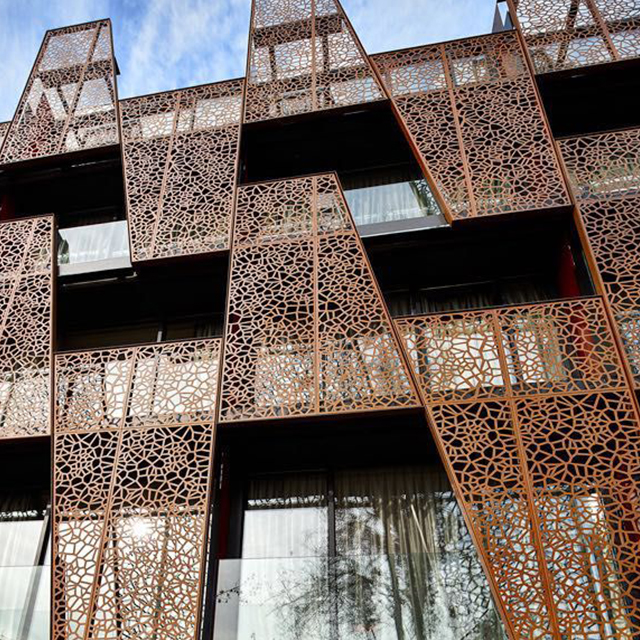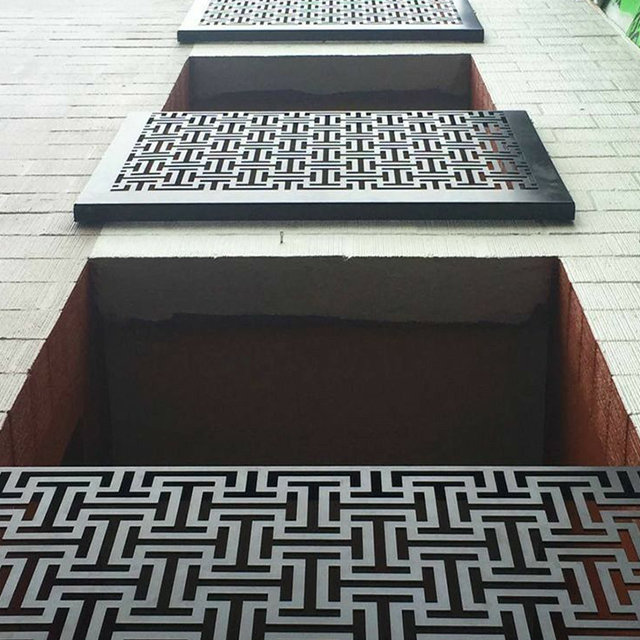In the realm of modern architecture, aluminum cladding systems have emerged as a frontrunner, captivating architects, engineers, and building owners alike with their unique blend of aesthetics, durability, and versatility. These lightweight, corrosion-resistant panels offer a myriad of benefits that make them a compelling choice for a wide range of structures.

Unveiling the Advantages of Aluminum Cladding Systems
- Durability and Longevity: Aluminum cladding is renowned for its exceptional durability, withstanding harsh weather conditions, corrosion, and UV radiation. This resilience translates into long-lasting facades that require minimal maintenance, ensuring the building’s exterior retains its aesthetic appeal and structural integrity for decades.
- Lightweight Construction: Aluminum is one of the lightest metals commonly used in construction, making aluminum cladding panels significantly lighter than traditional materials like brick or concrete. This lightweight construction reduces the overall weight of the building, minimizing structural requirements and potentially leading to cost savings in foundation and framing.
- Aesthetics and Design Flexibility: Aluminum cladding offers a vast array of aesthetic options, with a wide range of colors, finishes, and textures to complement diverse architectural styles. Its versatility allows architects and designers to create visually striking and unique facades that align with the overall aesthetic vision for the building.
- Energy Efficiency: Aluminum cladding can contribute to a building’s energy efficiency by incorporating insulation materials within the panel structure. This insulation helps regulate interior temperatures, reducing energy consumption and lowering heating and cooling costs, particularly in extreme climates.
- Fire Resistance: Aluminum cladding can be designed to meet stringent fire safety standards, providing a protective barrier against fire and smoke penetration. This fire resistance is crucial for ensuring the safety of occupants and the integrity of buildings, especially in high-rise structures or those with high fire hazard occupancy.
- Sustainability: Aluminum is a highly recyclable material, aligning with environmentally conscious building practices. Its long lifespan further reduces its environmental impact, as it minimizes the need for frequent replacements and associated waste generation.
- Ease of Installation: Aluminum cladding panels are typically prefabricated and modular, streamlining the installation process and reducing construction time. This can lead to cost savings and project completion within shorter timelines, particularly for large-scale projects.
- Low Maintenance Requirements: Aluminum cladding requires minimal upkeep, typically involving occasional cleaning and inspections. This low-maintenance nature contributes to reduced lifecycle costs and hassle-free building management, ensuring the building’s exterior remains aesthetically pleasing and structurally sound for years to come.
Applications of Aluminum Cladding Systems
The versatility of aluminum cladding systems extends to their diverse applications across various structures:
- Commercial Buildings: Aluminum cladding is widely used in commercial buildings, including offices, retail stores, and warehouses, due to its durability, aesthetics, cost-effectiveness, and energy efficiency.
- Residential Buildings: Aluminum cladding is gaining popularity in residential construction, particularly in modern architectural styles, as it offers a unique aesthetic, long-lasting protection, and low maintenance requirements.
- Public Buildings: Aluminum panels can be effectively employed in public buildings, such as schools, libraries, and community centers, offering a balance of durability, aesthetics, cost-effectiveness, and energy efficiency.
- Industrial Buildings: Aluminum cladding is a popular choice for industrial buildings, such as factories, manufacturing plants, and distribution centers, as it can withstand harsh working environments and provide a clean, professional appearance.
Conclusion
Aluminum cladding systems have revolutionized the construction industry, becoming a preferred choice for architects, engineers, and building owners worldwide. Their exceptional durability, unparalleled versatility, compelling cost-effectiveness, and commitment to sustainability make them an ideal solution for a wide range of structures. As the demand for sustainable, durable, and aesthetically pleasing building solutions continues to grow, aluminum cladding systems are poised to play an even more prominent role in shaping the exteriors of modern structures.





